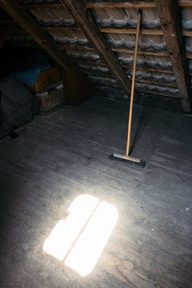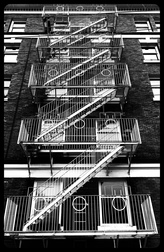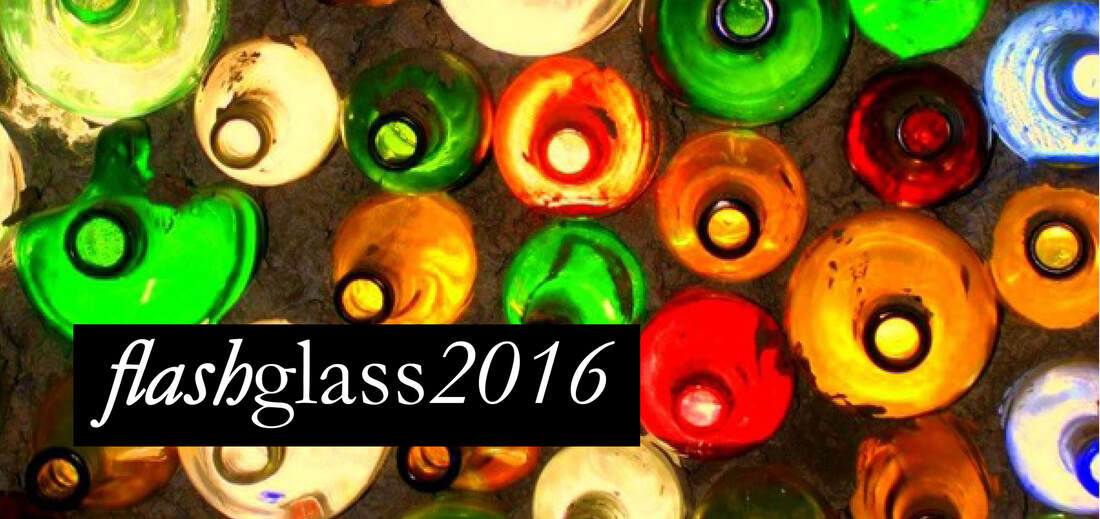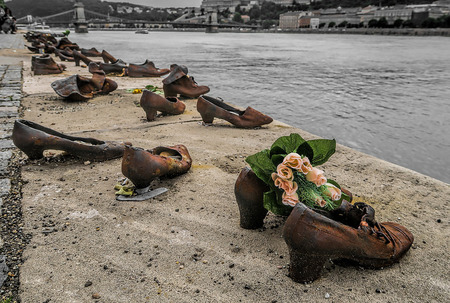 Years ago, I left this house, ran from everything in it, my dad’s last words repeating themselves on a loop in my mind, the funeral over so all I had to do was lock the door to my childhood home and flee, I thought, forever. Though he had left it to me, how could I walk the same halls he and Mom, gone just two years before, had walked since my birth? How could I sit at the same table where the three of us ate together? How could I? How could I? Yesterday, the tenth anniversary of Dad’s death dawned gray in my married home. I looked at my husband, whispered, “I can go back.” He hugged me and said, “Go.” I drove the hundred miles from our small town to the countryside where I grew up, memories making their way back mile by mile. Now in the still house, the creak of the closet door rings and lingers where once language and laughter filled the kitchen. Inside, I dig through musty shirts, jackets, and hats Dad wore over seasons as he chopped wood, trimmed plants, and shoveled snow to keep us connected with friends and neighbors. I search until I find it--the broom. Bringing it out, I gaze back at my path taken today from entryway to closet. Such a long, slow journey to return here, I marvel at the familiar books calling my name and the handsome grandfather clock striking the hour. My steps had left footprints in the settling dust of ten years, so I began to sweep. Broom bristles leave a series of lines and patterns. I sweep again and again to clean every inch. The swishing has a rhythm, and I find myself humming a tune. After what seems but a minute, the dust disappears; no longer do I see my footprints on the floor. I return to the closet, open the door once more. The creak still startles, no longer lingers. Anjali Pursai was accepted into the prestigious workshop devoted to poetry, Poetry Power in the San Francisco Bay Area, taught by an award winning poet. Since that time, she has earned several publications, such as Chautauqua Literary Magazine in New York, and awards, such as the National League of American Pen Women. She has also been invited to read her work aloud at a number of well-known Bay Area locations, such as the Koret Auditorium at the Main Branch of the San Francisco Library. She finds herself more and more enthusiastic about the art of poetry, both writing and reading it aloud or to herself.
0 Comments
Why not red? To match her little leather book embossed with a dappled kestrel? To match the wilted poppy twisted in her deep blue hair? She has seen the piles of dolls crowded in roped-together boats, drifting listlessly, seasick and heartsick, anxious as cats. They bleed because now they have blood. The wind eats their foreheads and painted pink smiles. They are the opposite of pure. Salt in their eyes makes them suffer. Their bright kimonos, many-layered, pinch and steal their breath. When they can’t stand the smell, they cast their peach blossoms and rice cakes into the sea. Who would want these dolls now?They are still too precious to touch. The weight of any shoe fits the mermaid’s palm like a clam. Rows of black silk slippers gaze at her like otter eyes.  Kathleen McGookey’s most recent book is Stay (Press 53). Her book Heart in a Jar is forthcoming from White Pine Press in Spring 2017. Her work has appeared in journals including Crazyhorse, Denver Quarterly, Epoch, Field, Ploughshares, Prairie Schooner, and Quarterly West. She has received grants from the French Ministry of Foreign Affairs and the Sustainable Arts Foundation.  I rented an apartment above the bank downtown, where, straight out of the 40’s, an army of women staffed the gleaming counter, dabbing their lips and patting their hair. The children’s footsteps echoed through the light and airy halls. I don’t think we’re any safer here, my husband whispered, eyeing the crumbling black and white tiles, the slow flies buzzing in the windows. Winter was coming. The police would come faster if we lived above a vault. Later, when fall colors were at their finest, we could hold dinner parties at the country house. Now, on our first night, we searched for the hidden staircase to our new quarters. We each held a twin’s hand, but when the baby wailed, we saw yellow jackets crawling all over her teeth and tongue.  Kathleen McGookey’s most recent book is Stay (Press 53). Her book Heart in a Jar is forthcoming from White Pine Press in Spring 2017. Her work has appeared in journals including Crazyhorse, Denver Quarterly, Epoch, Field, Ploughshares, Prairie Schooner, and Quarterly West. She has received grants from the French Ministry of Foreign Affairs and the Sustainable Arts Foundation.  My kitchen clock stopped where I like it, 11:37, morning just blooming into afternoon. My desk clock froze at 10:10—plenty of time to work before lunch. Between kitchen and desk an hour opens: bees disappear into my hydrangeas, a thrush calls from the field, and my creek and the traffic beyond it warble and hiss, braid themselves into a white rush that settles around me. I have clocks of wasps and swans, of hammers and sand, of bridges over mist and the boat-shaped leaves that drift below. My doctor’s appointments never arrive on my clocks of teeth and dice, of napping cats, of thick erasers and combs. The children are always snug at school, learning their times tables and trading pennies for nickels. If I go out, my brother comes and winds my clocks.  Kathleen McGookey’s most recent book is Stay (Press 53). Her book Heart in a Jar is forthcoming from White Pine Press in Spring 2017. Her work has appeared in journals including Crazyhorse, Denver Quarterly, Epoch, Field, Ploughshares, Prairie Schooner, and Quarterly West. She has received grants from the French Ministry of Foreign Affairs and the Sustainable Arts Foundation. "She says she is counting cars. Motorists who have seen her day after day for the past year imagine she may be contemplating suicide, taking down license plates, or waiting for a perfect time to disrupt the Woodrow Wilson Bridge. She is merely working, she says, on an 'independent marketing survey.' A nearby gas station attendant, who watches her every day, has long since given up wondering."  photo via flickr sparktography photo via flickr sparktography Long hair blowing like seaweed, she stands on the overpass counting the rush hour traffic below by entering tick marks on a clipboard. She is tall and slender and wears a long brown prairie skirt and yellow rubber rain boots. I have yet to see her face. She never looks away from the traffic or up from a newspaper stretched in her wide open grasp, and I wonder if she uses the paper to sight the line of cars as they surface to the top of her page. She is always alone, and with her long hair blowing and her arms outstretched she is like a Nereid on a bridge welcoming her guests back from the sea as they flow home safely beneath her. She is out again today and as I drive by I catch the tight curve of her long skirt and the turn of her ankle and wonder how it would be to make love to the traffic counter. Would she be as detached as when she counts the traffic, and lie there in a dull torpor while she counts the seconds then the minutes as she waits for me to finish, or would she be a human engine like the throbbing traffic she surveys, and would she, after I am spent, continue to surge over me as I try to keep pace beneath her while, one after another, I count her convulsions as they ebb and flow.  Ed McCafferty has had recent acceptances by Scribble, Clark Street Review, and Word Fountain, as well as previous poems in Poet Lore, Gargoyle, and Potomac Review among others. He is the author of the chapbook “Audrey and I Stride Forth” published by Argonne House Press, Washington DC (2002). He is also the author of a graduate textbook in chemistry entitled “Introduction to Corrosion Science” published in 2009 by Springer Press of New York. He lives in Alexandria, VA with his wife and two cats. |
FLASH GLASS: A MONTHLY PUBLICATION OF FLASH FICTION, PROSE POETRY, & MICRO ESSAYSCategories
All
Cover Image:
|
|
Glassworks is a publication of Rowan University's Master of Arts in Writing 260 Victoria Street • Glassboro, New Jersey 08028 [email protected] |
All Content on this Site (c) 2024 Glassworks
|



 RSS Feed
RSS Feed
